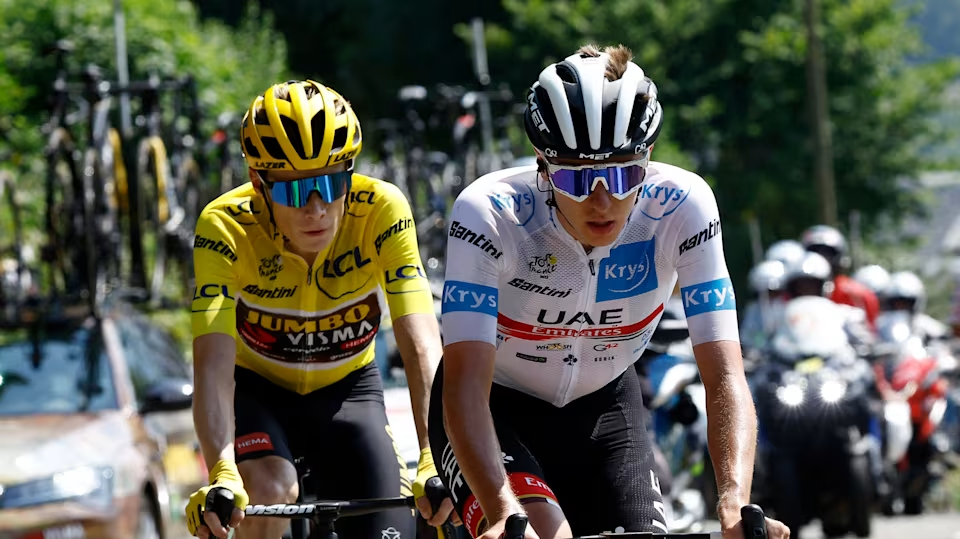**Tadej Pogačar Criticizes Mathieu Van Der Poel, Stirring Controversy in Cycling World**
In a surprising development within the cycling community, Tadej Pogačar has sparked controversy by openly criticizing Mathieu Van Der Poel, a fellow cycling star known for his versatility and dominance across multiple disciplines. Pogačar’s remarks, made during a recent interview, have ignited a debate among fans and analysts, shedding light on tensions within the competitive world of cycling.
The criticism from Pogačar, who has risen to prominence with consecutive Tour de France victories and a reputation for strategic prowess, targeted Van Der Poel’s approach to racing and his perceived impact on the dynamics of competitive cycling. While specifics of the criticism were not fully detailed, Pogačar’s comments hint at underlying tensions and differing perspectives on sportsmanship and tactical strategies in the sport.
Mathieu Van Der Poel, hailing from a storied cycling family and excelling in both road and off-road disciplines, has been a formidable force in recent seasons. His aggressive racing style and ability to excel in diverse terrains have earned him admiration and accolades, making him a favorite among fans and a formidable competitor on the global stage.
The controversy surrounding Pogačar’s critique underscores the competitive nature of professional cycling, where rivalries and strategic rivalries are as intense off the road as they are on it. Fans and observers of the sport have been quick to weigh in on the debate, with opinions divided on whether Pogačar’s comments were justified or reflective of personal rivalry.
Supporters of Van Der Poel highlight his achievements and contributions to cycling, noting his ability to push boundaries and redefine excellence in the sport. They argue that his innovative approach to racing has revitalized interest and brought new dimensions to competitive cycling, enhancing its appeal to a broader audience.
Conversely, critics aligned with Pogačar point to the competitive landscape and the necessity for athletes to uphold certain standards of sportsmanship and respect. They suggest that while Van Der Poel’s success is undeniable, scrutiny of his racing tactics and their impact on the sport is essential for its continued integrity and evolution.
As both riders continue to prepare for upcoming races and championships, including prestigious events like the Tour de France and World Championships, the spotlight remains on how they navigate the aftermath of this controversy. Whether Pogačar’s critique fosters constructive dialogue or adds fuel to an ongoing rivalry between cycling’s brightest stars, one thing is certain: the dynamics of competitive cycling are as complex and unpredictable as the races themselves, keeping fans eagerly anticipating the next chapter in this compelling saga.
